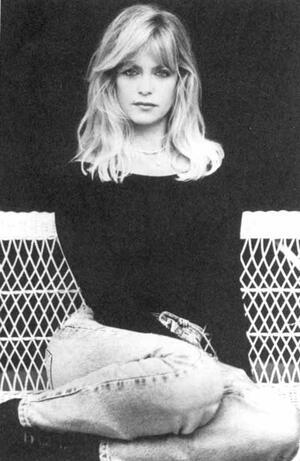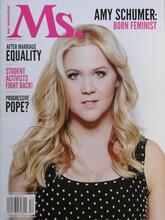Goldie Hawn
Goldie Hawn began dancing at age three; later, while attending American University, she ran her own ballet school. Hawn then moved to New York City to pursue acting and dance. To support herself, she danced at the 1964 World’s Fair, at clubs, and in the chorus of touring Broadway musicals. In 1967, she was spotted by producers from Rowan and Martin’s Laugh-In, who hired her as a regular on their show, where her performance earned an Emmy. In 1969, Hawn won an Oscar and a Golden Globe for her role in Cactus Flower, and she went on to star in Steven Spielberg’s first film, Sugarland Express. Hawn added the role of executive producer to her name with 1980’s Private Benjamin and she continues to act and produce films with her own production company.
Early Life and Career
Goldie Hawn was born in Silver Spring, Maryland, on November 21, 1945, to Laura (Stienhoff) Hawn, a dance school owner and jewelry wholesaler, and Edward Rutledge Hawn, a professional musician. Hawn was raised Jewish, although, she notes, “not in a strictly religious atmosphere,” and she describes a happy home life. She began dancing at age three and danced in the Ballet Russe de Monte Carlo’s Nutcracker chorus at age ten. Hawn recalls being asked to dance on point for a friend’s Lit. "son of the commandment." A boy who has reached legal-religious maturity and is now obligated to fulfill the commandmentsbar mitzvah. The music started, and she slipped and fell—twice. Succeeding on her third attempt, “I realized I was probably the little girl who was going to make it.”
After graduating high school, Hawn attended American University while running her own ballet school. Two years later, she moved to New York City to pursue acting and dance seriously. To support herself, she danced in the Texas Pavilion at the 1964 World’s Fair, at numerous clubs, and in the chorus of touring Broadway musicals. Producers from Rowan and Martin’s Laugh-In spotted her dancing on an Andy Griffith television special in 1967 and hired her as a regular. Hawn’s endearing giggles and improvisational ability on Laugh-In (1968–1970) earned her an Emmy and, less welcome, comments about her “dumb-blonde routine.” Her character, Hawn clarifies, “was a deeply joyful blonde. I never thought of her as dumb.”
Awards and Movie Producing
In 1969, Hawn won a “Best Supporting Actress” Oscar and a Golden Globe Award for the film Cactus Flower. She went on to a critically acclaimed dramatic role in Steven Spielberg’s first film, Sugarland Express. With 1980’s highly successful comedy Private Benjamin, she added the role of executive producer to that of star. In perhaps her most accomplished performance, Hawn shows Benjamin’s metamorphosis from selfish, stereotypical Jewish American Princess to self-aware, empowered woman in charge. Behind the camera, Hawn faced the challenges common to women filmmakers in the traditionally male-dominated industry. “Women’s power in Hollywood is not an easy thing to come by,” she says. “A woman is constantly tempering her own point of view, her own passion.” But, Hawn remembers, “I just stuck to my guns … and this was hard because I didn’t want people to see me as a bitch.”
Hawn values her independence, although she believes “it’s hard for any woman. Women run households, they raise children, they have to be very, very tough. I always saw my mother working, so I never grew up thinking that a man would take care of me, ever.” She also stresses the importance of family and states that her main goal in life has been “to be a good mother.” Her 1969 marriage to dancer Gus Trikonis ended in 1974. Hawn had two children, Oliver (b. 1976) and Kate (b. 1977), with musician Bill Hudson, whom she married in 1976 and divorced in 1980. Since 1983 Hawn has lived with actor Kurt Russell, whom she met on the set of the film Swing Shift. Hawn and Russell’s family includes Kate, Oliver, Boston (b. 1980, Russell’s son from a former marriage), and Wyatt (b. 1986).
Hawn is one of the most successful women in Hollywood. She has acted in over thirty films; in 1996 she was seen in The First Wives Club, which quickly made over $100 million at the box office, and in Woody Allen’s musical film Everybody Says I Love You. Along with her First Wives Club co-stars, Hawn received a 1997 Women in Film Crystal Award. She continues to produce, including the 1995 blockbuster Something to Talk About, and runs Cherry Alley Productions with Teri Schwartz. Hawn has made eight trips to India since her first in 1980, most recently to film In the Wild, a 1996 PBS documentary on saving the elephants.
In 1997, Hawn made her directorial debut with the television film Hope, a coming off age film about a girl growing up in the American South during the 1960s. She starred alongside Susan Sarandon in The Banger Sisters in 2002 and did not return to film acting until 2017, when she starred as Amy Schumer’s character’s mother in Snatched.
In 2002, Hawn started The Goldie Hawn Foundation, a non-profit focused on improving childhood mental health through its program called MindUP.
Bachrach, Judy. “Goldie’s Big Splash.” Vanity Fair (January 1997).
“Mirror Mirror on the Wall, Who’s the Fairest of Them All: Goldie.” Tatler (December 1996).
Ellerbee, Linda. “The Goldie Years.” Live (October 1996).
Fuller, Graham. “The Goldie Rush.” Interview (September 1996).
James, Ryan. “Hawn in Her Golden Years: Forever Blond, Forever Smart.” NYTimes, December 1, 1996, sec. 2, p. 13.
Kaltenbach, Chris. “Goldie Hawn Makes Her Debut as the Director of a TV Movie Review: Actress Goes behind the Camera to Make 'Hope,' about a Girl's Coming of Age in the Troubled South of the '60s.” Baltimore Sun, October 12, 2018. https://www.baltimoresun.com/news/bs-xpm-1997-10-19-1997292123-story.ht….
Marshall, Leslie. “Goldie Hawn: At Home with Her Family in Los Angeles.” In Style 3,no. 8 (August 1996).
Michaelson, Judith. “Goldie Hawn: Just a Homebody After All?” Los AngelesTimes, December 24, 1987, pt. 6, p. 1.
“MindUp " About.” MindUp, n.d. https://mindup.org/about/.
Nesselson, Lisa. “The Banger Sisters.” Variety, September 11, 2002. https://variety.com/2002/film/reviews/the-banger-sisters-1200546287/.
Schawbel, Dan. “Goldie Hawn: How Her Foundation Is Supporting Our Youth.” Forbes Magazine, August 1, 2013. https://www.forbes.com/sites/danschawbel/2013/07/31/goldie-hawn-how-her….
“Snatched.” IMDb.com, May 12, 2017. https://www.imdb.com/title/tt2334871/.
“WIF Awards Retrospective.” WIF, n.d. https://womeninfilm.org/updates/wif-awards-retrospective/.




